Removal Procedure
Notice: Do NOT use any type of grease to retain parts during the assembly of
this unit. Using greases other than the recommended assembly lube changes
the transaxle fluid characteristics. Using greases other than the recommended
assembly lube causes undesirable shift conditions and/or filter clogging.
Use TRANSJEL™ J 36850 or equivalent during the assembly
of this unit.
- Raise and support the vehicle. Refer to
Lifting and Jacking the Vehicle
in General Information.
- Place a drain pan under the transaxle bottom oil pan
- Remove the oil pan bolts (23) from the front.
- Remove the oil pan bolts (23) from the sides.
- Loosen the rear oil pan bolts (23) approximately four turns.
Notice: Ensure care is taken NOT to damage the mating surfaces of the oil pan
and of the case or oil leaks may occur.
- Use a rubber mallet to lightly tap the oil pan or use a screwdriver
to pry the oil pan loose.
- Allow the fluid to drain.
- Remove the remaining oil pan bolts (23).
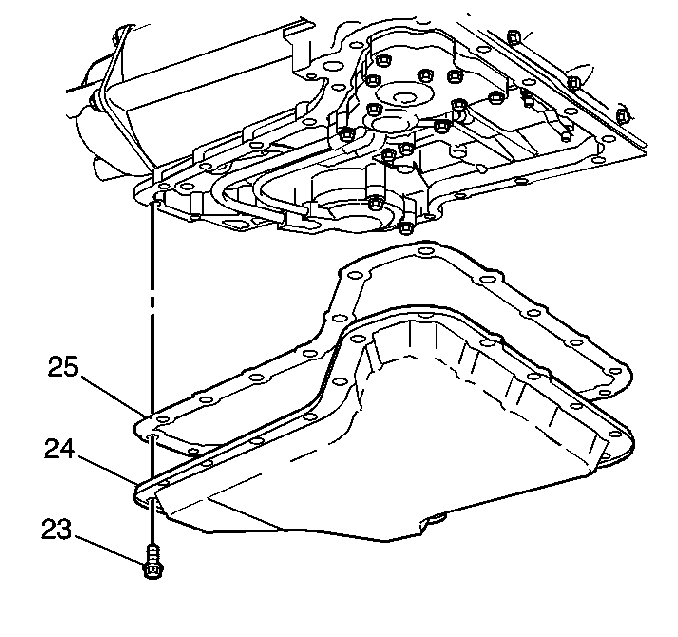
- Remove the oil pan (24).
- Remove the oil pan gasket (25).
- Inspect the oil pan and the filter screen for the following foreign
material:
| • | Inspect for metal particles. |
| • | Inspect for clutch facing material. |
| • | Inspect for rubber particles. |
| • | Inspect for engine coolant. |
- Determine the source of the contamination if foreign material
is evident.
- Correct the source of the contamination.
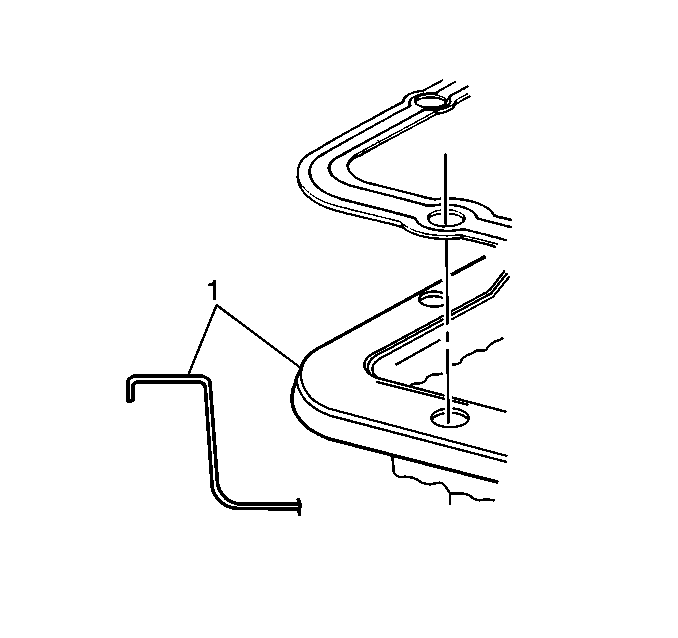
- Inspect the oil pan flange
(1) for distortion.
- Replace the oil pan (1) if bent or distorted. Do not attempt to
straighten.
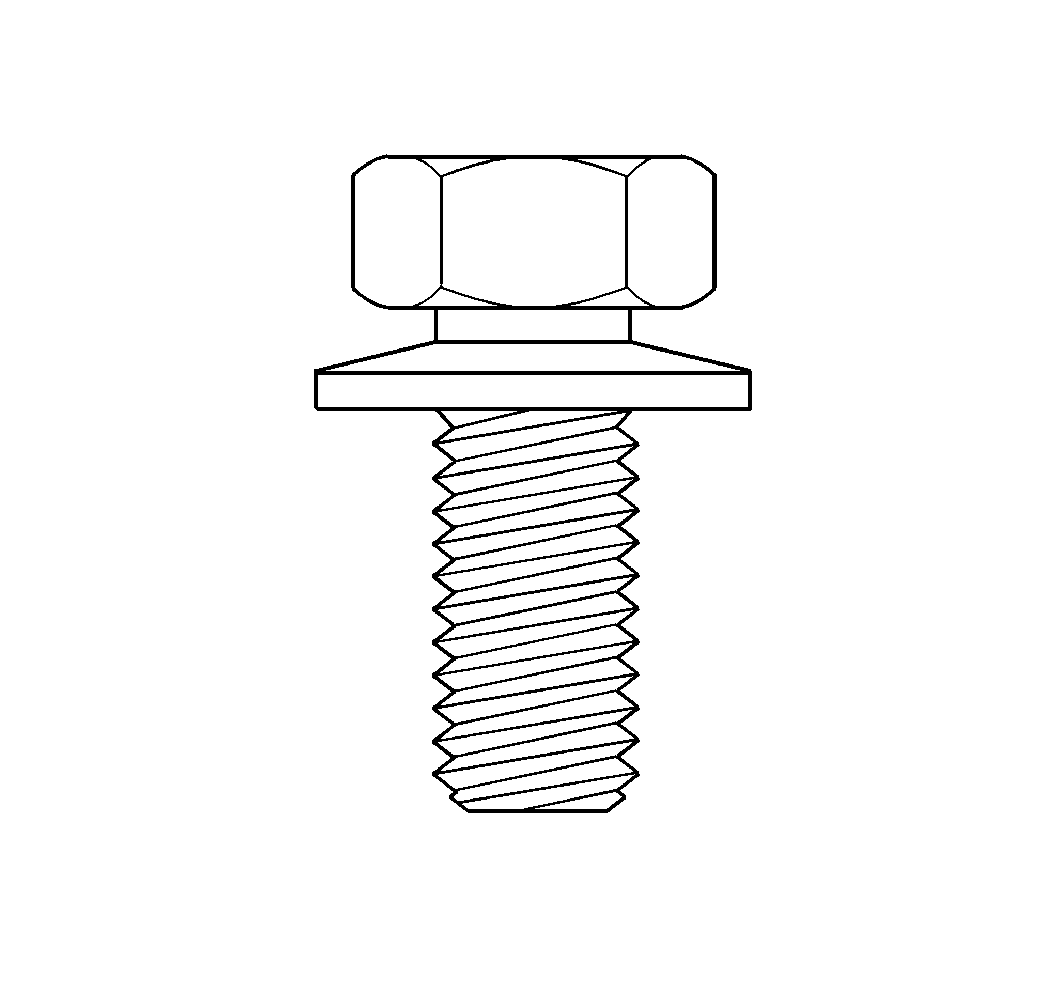
- Inspect the washers on
the bolts when service requires the removal of the bottom oil pan.
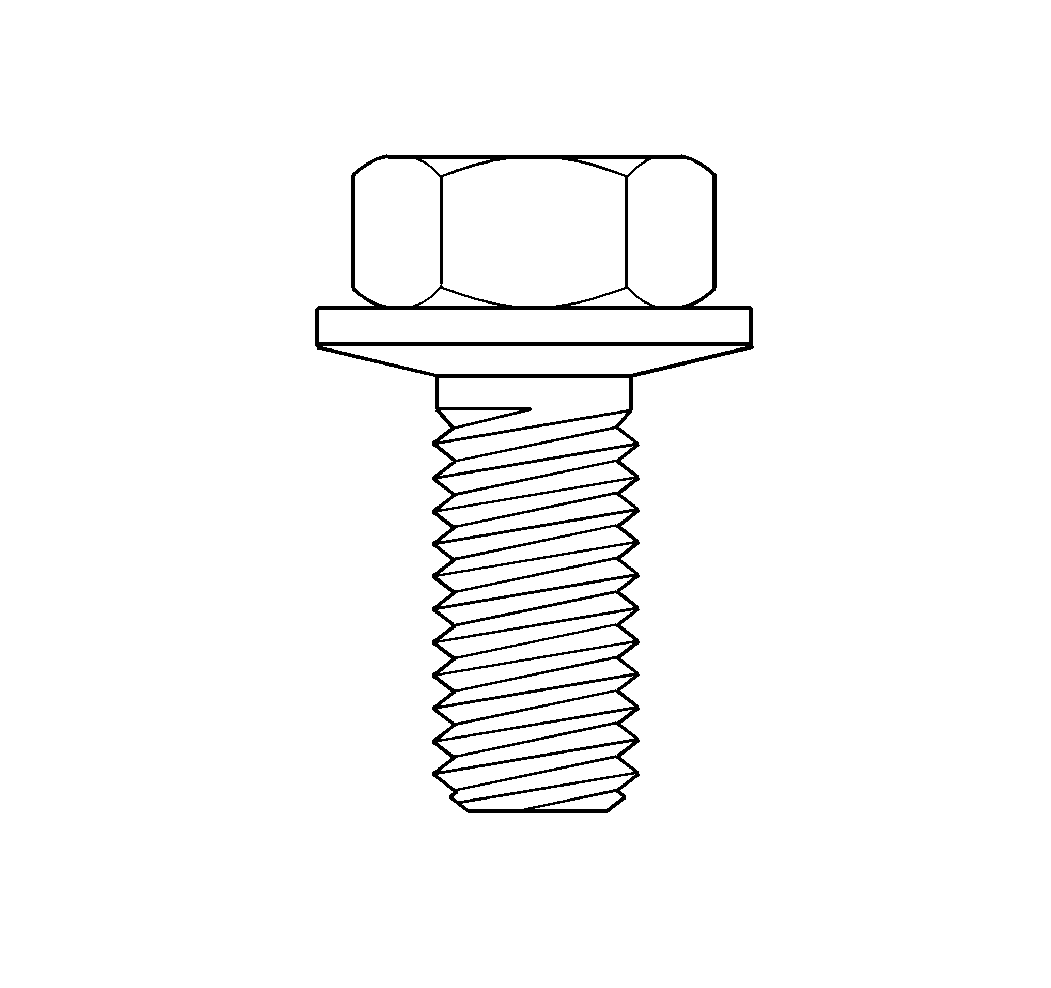
- Install a new bolt and washer assembly if the washer is inverted.
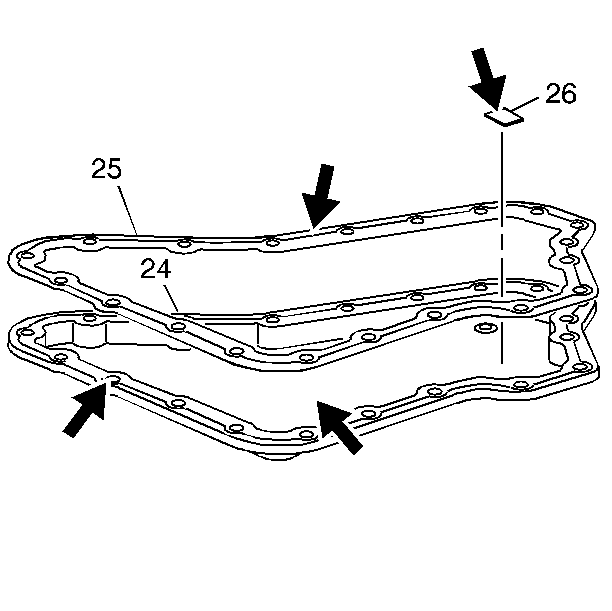
- Inspect the oil pan (24) for the following condtions:
| • | A damaged sealing surface |
| • | A dented or cracked bottom surface |
- Inspect the oil pan gasket (25) for the following condtions:
| • | A bent or damaged seal core |
| • | A damaged rubber seal surface |
- Inspect the oil pan magnet (26) for the following condtions:
- Clean the oil pan, the gasket and the magnet in order to remove
any sediment.
Notice: Ensure the oil pan and the case flanges are dry and are free of any
oil film or leakage may result.
- Use solvent to clean the case.
- Air dry the case.
- Use solvent to clean the oil pan gasket surfaces.
- Air dry the oil pan gasket surfaces.
- Ensure all traces of the old gasket material are removed.
Installation Procedure

- Install the oil pan gasket
(25).
- Install the oil pan (24).
Notice: Use the correct fastener in the correct location. Replacement fasteners
must be the correct part number for that application. Fasteners requiring
replacement or fasteners requiring the use of thread locking compound or sealant
are identified in the service procedure. Do not use paints, lubricants, or
corrosion inhibitors on fasteners or fastener joint surfaces unless specified.
These coatings affect fastener torque and joint clamping force and may damage
the fastener. Use the correct tightening sequence and specifications when
installing fasteners in order to avoid damage to parts and systems.
- Install the oil
pan bolts (23).
Tighten
Tighten the oil pan bolts (23) to 14 N·m (10 lb ft).
- Lower the vehicle.
- Fill the transaxle with the proper quantity of DEXTRON® III.
- Place the gear selector in the Park position.
- Start the engine.
- Run the engine at a slow idle. Do NOT race the engine.
Notice: Do NOT overfill the transaxle. The overfilling of the transaxle
causes foaming, loss of fluid, shift complaints, and possible damage to the
transaxle.
- Adjust the fluid level. Refer to
Transmission Fluid Check
,
Fluid Capacity Specifications
,
Approximate Fluid Capacities
in Maintenance and Lubrication and
Fluid and Lubricant Recommendations
in Maintenance and Lubrication.
- Inspect for proper completion of the repairs.
- Inspect the fluid for leaks.






